- Your cart is empty
- Continue Shopping

Product
Buy Tecentriq (Atezolizumab) Online
$6,268.90
Tecentriq (Atezolizumab) is an immune checkpoint inhibitor used in conjunction with chemotherapy or other cancer medications to attack cancer cells. By blocking PD-L1, a protein on some cancer cells, Tecentriq allows the immune system to recognize and target cancer cells. Clinical trials show that Tecentriq extends survival and improves outcomes in patients with lung cancer, bladder cancer, and triple-negative breast cancer. Tecentriq is generally well-tolerated, administered intravenously once every three or four weeks, and monitored for potential side effects. Tecentriq is FDA-approved for several types of cancer, making it a promising treatment option for many cancer patients.
Tecentriq, also known as Atezolizumab, is a type of cancer medication called an immune checkpoint inhibitor. It works by allowing the immune system to recognize and attack cancer cells.
Tecentriq is approved for the treatment of certain types of cancer, including lung cancer, bladder cancer, and triple-negative breast cancer. It is typically used in combination with chemotherapy or other cancer medications.
Tecentriq works by targeting a protein called PD-L1, which is found on some cancer cells. PD-L1 helps cancer cells evade the immune system by inhibiting the activity of T cells, a type of immune cell that attacks cancer cells. Tecentriq blocks PD-L1, and this helps the immune system to better recognize and target cancer cells.
In clinical trials, Tecentriq has been shown to extend the survival of cancer patients when used in combination with chemotherapy. In one study, patients with advanced non-small cell lung cancer who received the Tecentriq and chemotherapy combination had a 38% reduction in the risk of death compared to those who received chemotherapy alone. In another study, patients with triple-negative breast cancer who received Tecentriq in combination with chemotherapy had a significantly longer progression-free survival compared to those who received chemotherapy alone.
Tecentriq is administered as an intravenous infusion every three or four weeks, depending on the indication. The infusion takes about an hour. Patients receiving Tecentriq are closely monitored for potential side effects.
Common side effects of Tecentriq include fatigue, decreased appetite, nausea, diarrhea, and skin rash. More serious side effects can occur, and these include severe or life-threatening immune-related adverse events such as pneumonitis, hepatitis, and colitis. Patients should talk with their healthcare provider about the risks and benefits of Tecentriq.
Tecentriq is an important treatment option for many cancer patients, and it offers hope for those who may have limited treatment options. It has been shown to extend survival and improve outcomes in clinical trials, and it is generally well-tolerated. Todate, FDA have approved Tecentriq for several different types of cancer, making it a promising treatment option for many cancer patients. It is important for individuals to work closely with their healthcare provider to determine if Tecentriq is the right treatment option for them.
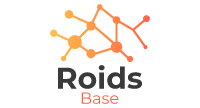
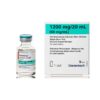
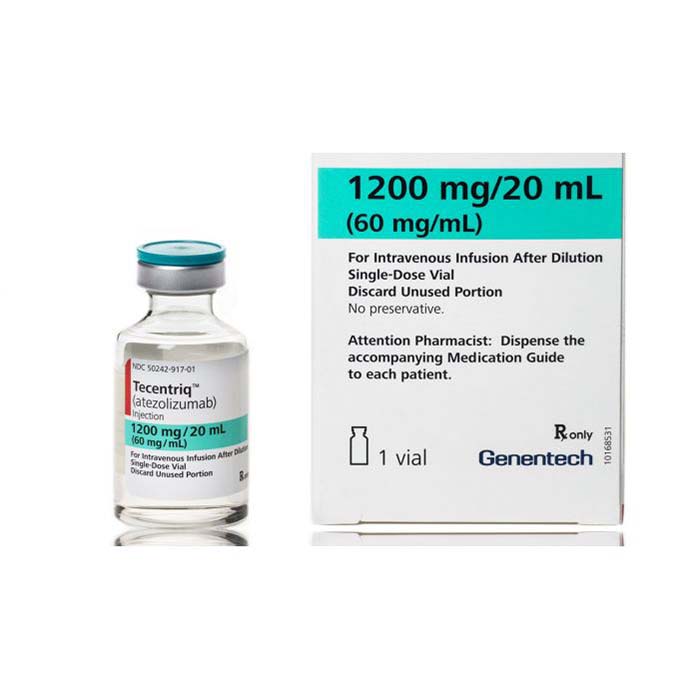

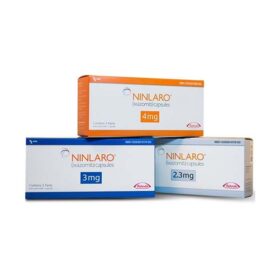
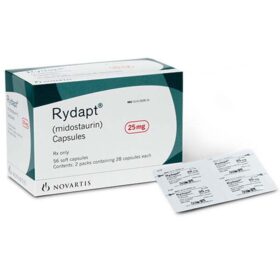
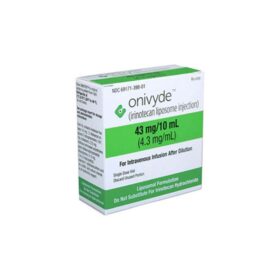
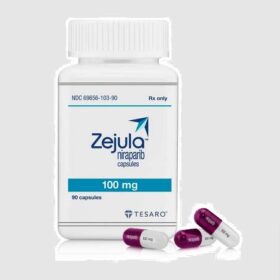
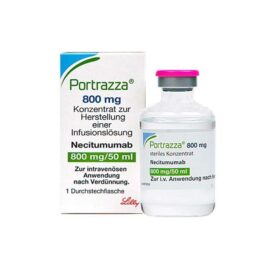

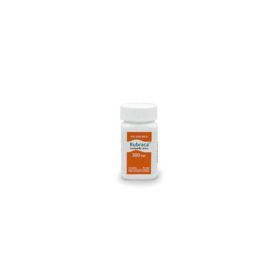



Reviews
There are no reviews yet.